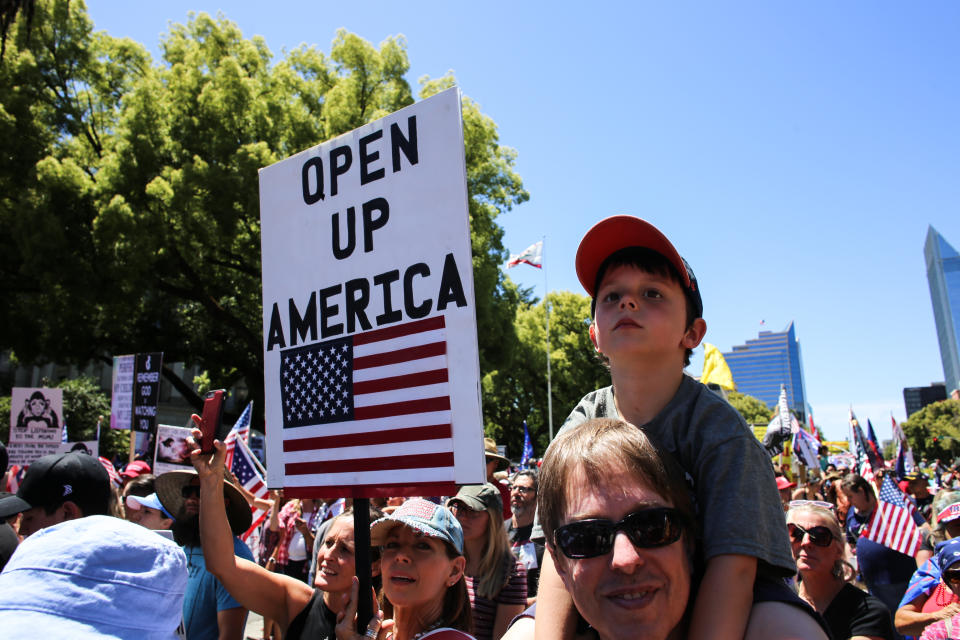A theory for why the 'startling' jobs numbers conflict with the other gloomy data
Amid one of the worst economic shocks in modern history caused by the COVID-19 pandemic, the U.S. economy unexpectedly added 2.5 million jobs in May after a record 20.69 million job losses in April, according to the Bureau of Labor Statistics (BLS).
Many were left scratching their heads following the shocking report, but one top economist laid out his theory on why the report conflicted with other recent data.
“The biggest payroll surprise in history, by a gigantic margin, likely is due to a wave of hidden rehiring. Businesses which let people go in large numbers in March didn’t need to post their intention to bring people back on Indeed; they just needed to call/text/email,” Pantheon Macroeconomics Chief Economist Ian Shepherdson wrote in an email Friday.
“Still, it's a mystery why ADP didn’t pick this up, and it contradicts the continuing claims numbers, up 3M between the April and May survey weeks,” he added.

All of the recent employment data would suggest that consensus estimates of 7.5 million nonfarm payroll losses would be more likely than not.
ADP’s private employment report Wednesday showed that the U.S. economy lost 2.76 million private payrolls in May, which was much better than economists’ expectations for 9 million job losses in the month. Even so, 2 million job losses was a staggering number. And while the ADP report isn’t always a reliable indicator of the BLS report, the discrepancy was particularly wide in May.
Furthermore, the weekly initial jobless claims report Thursday revealed another 1.88 million Americans filed for unemployment benefits in the week ending May 30, which brought the 11-week total to more than 42 million. After seeing a decline in the previous week’s report, continuing claims increased to 21.49 million in the week ending May 23, from 20.84 million in the previous week.
So then, how did economists miss the target so badly with the May jobs report?
“One possibility is that many people let go during the lockdowns didn’t make a recorded unemployment claim, either because they thought they would not qualify, or because their filing was caught up in backlogs. The latter would also help explain why initial claims now remain so high, even as the economy reopens,” Shepherdson noted.
Economists were projecting that the unemployment rate in May would surge to 19%, its highest level since the Great Depression. Instead, the unemployment rate ticked lower to 13.3% in May from 14.7% in April.
“The dip in the unemployment rate is smaller than we would have expected if we had known payrolls would rise 2.5M, but note that the response rate in the household survey was about 15 percentage points lower than usual,” Shepherdson said.
Shepherdson also explained that the unemployment rate is understated because of people classifying themselves as absent from work rather than unemployed or on temporary layoff. According to the BLS, that impacted the headline unemployment rate by about three percentage points.
“The true rate therefore is about 16%, some six percentage points higher than the peak after the crash of 2008,” he said.
—
Heidi Chung is a reporter at Yahoo Finance. Follow her on Twitter: @heidi_chung.
More from Heidi:
Find live stock market quotes and the latest business and finance news
Follow Yahoo Finance on Twitter, Facebook, Instagram, Flipboard, LinkedIn, and reddit.
